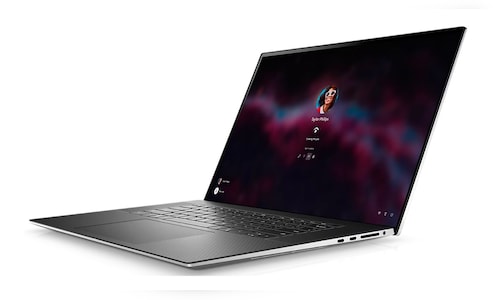
Revenue generated by Dell’s PC business declined 1% to $12.1 billion in the fiscal third quarter, falling short of estimates. While sales in HP’s PC unit rose 2% to $9.59 billion in the similar three-month period, that too missed the average analyst estimate.
“The PC refresh cycle is pushing into next year,” Dell Chief Financial Officer Yvonne McGill said Tuesday on a call with analysts after the results. HP Chief Executive Officer Enrique Lores said in an interview that the release of Microsoft Corp.’s new edition of Windows software hasn’t fueled PC sales from corporate clients as quickly as in previous releases.
The market had seen a historic decline in recent years after a burst of demand for new laptops in the early months of the pandemic when students and corporate employees were stuck at home. While signs of a rebound began to materialize this year, shipments again dipped in the third quarter, industry analyst IDC said in October.
PC makers had hoped that new machines touted as better for artificial intelligence workloads would spur demand. But “buyers have yet to see clear benefits or business value,” Mikako Kitagawa, an analyst at Gartner Inc., said in report last month.
Dell shares fell about 10% in late trading after closing at $141.74 in New York. The stock had gained 85% this year through Tuesday’s close. HP shares declined about 8% after closing at $39.10. HP stock had increased 30% this year.
Dell is best known for its computer business, but the Round Rock, Texas-based company has enjoyed a renaissance of investor interest due to its high-powered servers for artificial intelligence workloads. Earlier this month, Dell announced it was shipping servers with Nvidia Corp.’s new Blackwell semiconductors to cloud infrastructure provider CoreWeave.
Sales in Dell’s infrastructure unit including servers rose 34% to $11.4 billion in the period ended November 1, the company said in a statement. That’s just ahead of the $11.3 billion anticipated by analysts. Total revenue increased 10% to $24.4 billion, missing the average analyst estimate of $24.6 billion, according to data compiled by Bloomberg.
The company shipped $2.9 billion in AI-optimized servers in the quarter, executives said. The metric was a step down from the $3.1 billion reported in the preceding period.
“AI is a robust opportunity for us with no signs of slowing down,” Dell Chief Operating Officer Jeff Clarke said in the statement. He touted orders of AI servers in the quarter hitting $3.6 billion and growth “across all customer types.”
For the quarter ending in February, Dell gave a revenue outlook of about $24.5 billion. Analysts, on average, projected $25.4 billion. Adjusted earnings will be $2.40 a share to $2.60, compared with the average estimate of $2.66.
HP’s outlook also failed to impress. Earnings, excluding some items, will be 70 cents to 76 cents a share in the period ending in January, the Palo Alto, California-based company said. Analysts, on average, projected 86 cents.
“Weaker-than-expected Personal Systems sales and profit were the biggest drag on HP’s fiscal 4Q results, and its below-consensus 1Q EPS guidance suggests little improvement in PC demand in the seasonally stronger December quarter,” Woo Jin Ho, an analyst at Bloomberg Intelligence, said in a note after the results.



